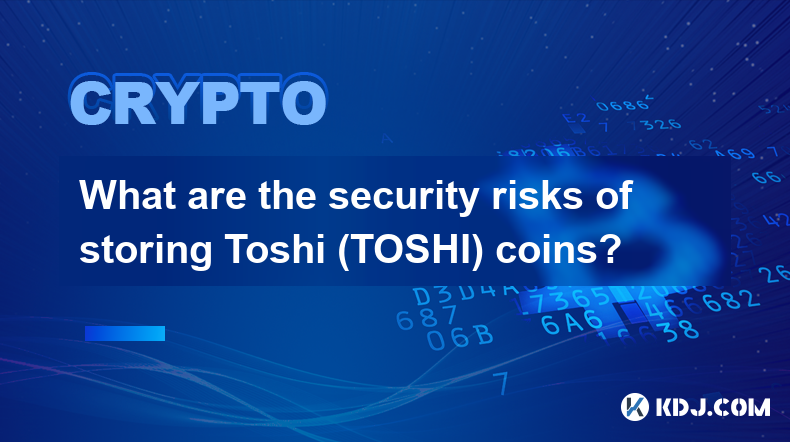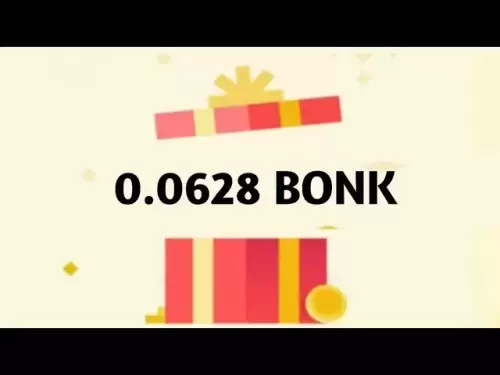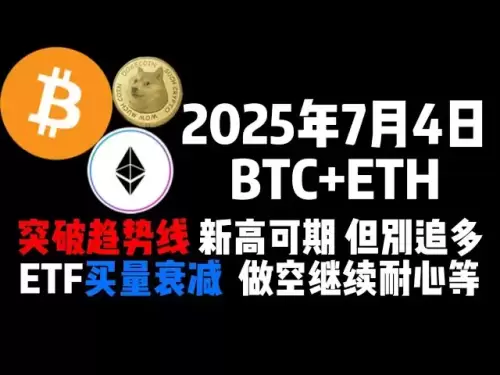-
 Bitcoin
Bitcoin $109,011.2121
-0.90% -
 Ethereum
Ethereum $2,554.1185
-2.06% -
 Tether USDt
Tether USDt $1.0005
0.01% -
 XRP
XRP $2.2311
-2.31% -
 BNB
BNB $658.5491
-0.76% -
 Solana
Solana $150.7662
-3.13% -
 USDC
USDC $1.0000
0.01% -
 TRON
TRON $0.2871
1.22% -
 Dogecoin
Dogecoin $0.1674
-4.20% -
 Cardano
Cardano $0.5832
-3.77% -
 Hyperliquid
Hyperliquid $38.8533
-4.62% -
 Sui
Sui $2.9346
-3.46% -
 Bitcoin Cash
Bitcoin Cash $479.1670
-5.20% -
 Chainlink
Chainlink $13.3735
-3.75% -
 UNUS SED LEO
UNUS SED LEO $9.0432
0.33% -
 Avalanche
Avalanche $18.1550
-4.29% -
 Stellar
Stellar $0.2401
-1.74% -
 Toncoin
Toncoin $2.8152
-3.35% -
 Shiba Inu
Shiba Inu $0.0...01161
-3.82% -
 Litecoin
Litecoin $87.8956
-4.07% -
 Hedera
Hedera $0.1564
-2.39% -
 Monero
Monero $322.9969
-0.77% -
 Polkadot
Polkadot $3.4525
-5.04% -
 Dai
Dai $1.0000
-0.02% -
 Ethena USDe
Ethena USDe $1.0001
-0.01% -
 Bitget Token
Bitget Token $4.5010
-2.55% -
 Uniswap
Uniswap $7.3786
-3.93% -
 Pepe
Pepe $0.0...09810
-8.27% -
 Aave
Aave $270.8275
-3.65% -
 Pi
Pi $0.4843
-4.64%
What are the security risks of storing Toshi (TOSHI) coins?
To safeguard TOSHI, opt for reputable exchanges with solid security and regulatory compliance while securing your wallet against hacking, phishing, and malicious software.
Jan 07, 2025 at 07:16 pm

Key Points
- Untrustworthy Exchanges: Avoid storing TOSHI on exchanges with poor security measures.
- Hacking and Phishing: Secure your wallet against hacking and phishing scams.
- Malware and Viruses: Protect your computer and devices from malware and viruses.
- Online Scams: Be cautious of online scams and fraudulent investment schemes involving TOSHI.
- Private Key Management: Safeguard your TOSHI private key to prevent unauthorized access.
- Multi-Signature Wallets: Enhance security by using multi-signature wallets that require multiple approvals for transactions.
- Cold Wallet Storage: Store significant TOSHI holdings in a cold wallet for offline protection.
Security Risks and Mitigation Strategies
1. Untrustworthy Exchanges
- Risks: Some exchanges may lack robust security measures, exposing TOSHI to potential theft or hacks.
- Mitigation: Opt for reputable exchanges with a strong track record of security and regulation.
- Due Diligence: Research an exchange thoroughly before trusting it with your TOSHI.
2. Hacking and Phishing
- Risks: Hackers may attempt to compromise your wallet or exchange account through phishing scams or malware.
Mitigation:
- Use strong and unique passwords for all cryptocurrency accounts.
- Enable two-factor authentication for added security.
- Be cautious of unsolicited emails or messages asking for your private information.
3. Malware and Viruses
- Risks: Malware and viruses can infect your computer or devices, stealing your TOSHI or private key.
Mitigation:
- Install reputable antivirus software and keep it updated.
- Avoid downloading suspicious software or clicking on untrustworthy links.
- Use a dedicated computer or device for cryptocurrency transactions.
4. Online Scams
- Risks: Fraudulent investment schemes and fake websites may attempt to deceive users into sending TOSHI.
Mitigation:
- Verify the legitimacy of investment opportunities and websites before committing funds.
- Ignore unsolicited messages or emails promising unrealistic returns.
- Report any suspicious activity to relevant authorities.
5. Private Key Management
- Risks: Your TOSHI private key is crucial for accessing your funds. If compromised, it can lead to theft.
Mitigation:
- Store your private key securely in a hardware wallet or on an encrypted, offline device.
- Never share your private key with anyone.
- Consider using a seed phrase to recover your private key in case of loss.
6. Multi-Signature Wallets
- Risks: Storing all your TOSHI in a single wallet leaves your funds vulnerable to theft or loss.
Mitigation:
- Use multi-signature wallets that require multiple approvals for transactions.
- Distribute the private keys to multiple trusted individuals or secure locations.
- Enhance the security and resilience of your TOSHI storage.
7. Cold Wallet Storage
- Risks: Keeping large amounts of TOSHI online exposes them to potential hacks or breaches.
Mitigation:
- Invest in a hardware wallet, which stores your TOSHI offline and provides additional security.
- Protect your hardware wallet with a strong password and passphrase.
- Store the hardware wallet in a safe and secure location.
FAQs
What is the safest way to store TOSHI?
- Using a hardware wallet and implementing the aforementioned security measures provides the highest level of protection.
Can I store TOSHI in a mobile wallet?
- Mobile wallets can be convenient for small amounts of TOSHI, but their security may not be as robust as hardware wallets.
How often should I update my online wallet?
- Keep your online wallet software up-to-date to patch any security vulnerabilities.
What are the most common phishing scams involving TOSHI?
- Phishing emails often impersonate legitimate organizations and request users to provide their private keys or click on malicious links.
What is a seed phrase and how is it related to TOSHI security?
- A seed phrase is a mnemonic phrase that can be used to recover your TOSHI private key if it is lost or stolen.
Disclaimer:info@kdj.com
The information provided is not trading advice. kdj.com does not assume any responsibility for any investments made based on the information provided in this article. Cryptocurrencies are highly volatile and it is highly recommended that you invest with caution after thorough research!
If you believe that the content used on this website infringes your copyright, please contact us immediately (info@kdj.com) and we will delete it promptly.
- Sui Price Surges Amid Lion Group's Treasury Move: What's Next?
- 2025-07-04 16:30:13
- BLAST Price Bounces Back After Token Unlock: Is the Rally Real?
- 2025-07-04 17:10:16
- Wormhole, Coinbase, and Interoperability: A New Era for Crypto?
- 2025-07-04 16:30:13
- Neo Pepe Coin ($NEOP): The Crypto Meme Coin Aiming to Eclipse Bitcoin & Ethereum?
- 2025-07-04 16:50:12
- Bitcoin Wallet Inactivity Ends: Whale Moves $1B+ BTC After 14 Years
- 2025-07-04 16:50:12
- Bitcoin Reserves, Institutional Adoption, and Cryptocurrency Strategy: A New Era
- 2025-07-04 17:10:16
Related knowledge

How to customize USDT TRC20 mining fees? Flexible adjustment tutorial
Jun 13,2025 at 01:42am
Understanding USDT TRC20 Mining FeesMining fees on the TRON (TRC20) network are essential for processing transactions. Unlike Bitcoin or Ethereum, where miners directly validate transactions, TRON uses a delegated proof-of-stake (DPoS) mechanism. However, users still need to pay bandwidth and energy fees, which are collectively referred to as 'mining fe...

USDT TRC20 transaction is stuck? Solution summary
Jun 14,2025 at 11:15pm
Understanding USDT TRC20 TransactionsWhen users mention that a USDT TRC20 transaction is stuck, they typically refer to a situation where the transfer of Tether (USDT) on the TRON blockchain has not been confirmed for an extended period. This issue may arise due to various reasons such as network congestion, insufficient transaction fees, or wallet-rela...

How to cancel USDT TRC20 unconfirmed transactions? Operation guide
Jun 13,2025 at 11:01pm
Understanding USDT TRC20 Unconfirmed TransactionsWhen dealing with USDT TRC20 transactions, it’s crucial to understand what an unconfirmed transaction means. An unconfirmed transaction is one that has been broadcasted to the blockchain network but hasn’t yet been included in a block. This typically occurs due to low transaction fees or network congestio...

How to check USDT TRC20 balance? Introduction to multiple query methods
Jun 21,2025 at 02:42am
Understanding USDT TRC20 and Its ImportanceUSDT (Tether) is one of the most widely used stablecoins in the cryptocurrency market. It exists on multiple blockchain networks, including TRC20, which operates on the Tron (TRX) network. Checking your USDT TRC20 balance accurately is crucial for users who hold or transact with this asset. Whether you're sendi...

What to do if USDT TRC20 transfers are congested? Speed up trading skills
Jun 13,2025 at 09:56am
Understanding USDT TRC20 Transfer CongestionWhen transferring USDT TRC20, users may occasionally experience delays or congestion. This typically occurs due to network overload on the TRON blockchain, which hosts the TRC20 version of Tether. Unlike the ERC20 variant (which runs on Ethereum), TRC20 transactions are generally faster and cheaper, but during...

The relationship between USDT TRC20 and TRON chain: technical background analysis
Jun 12,2025 at 01:28pm
What is USDT TRC20?USDT TRC20 refers to the Tether (USDT) token issued on the TRON blockchain using the TRC-20 standard. Unlike the more commonly known ERC-20 version of USDT (which runs on Ethereum), the TRC-20 variant leverages the TRON network's infrastructure for faster and cheaper transactions. The emergence of this version came as part of Tether’s...

How to customize USDT TRC20 mining fees? Flexible adjustment tutorial
Jun 13,2025 at 01:42am
Understanding USDT TRC20 Mining FeesMining fees on the TRON (TRC20) network are essential for processing transactions. Unlike Bitcoin or Ethereum, where miners directly validate transactions, TRON uses a delegated proof-of-stake (DPoS) mechanism. However, users still need to pay bandwidth and energy fees, which are collectively referred to as 'mining fe...

USDT TRC20 transaction is stuck? Solution summary
Jun 14,2025 at 11:15pm
Understanding USDT TRC20 TransactionsWhen users mention that a USDT TRC20 transaction is stuck, they typically refer to a situation where the transfer of Tether (USDT) on the TRON blockchain has not been confirmed for an extended period. This issue may arise due to various reasons such as network congestion, insufficient transaction fees, or wallet-rela...

How to cancel USDT TRC20 unconfirmed transactions? Operation guide
Jun 13,2025 at 11:01pm
Understanding USDT TRC20 Unconfirmed TransactionsWhen dealing with USDT TRC20 transactions, it’s crucial to understand what an unconfirmed transaction means. An unconfirmed transaction is one that has been broadcasted to the blockchain network but hasn’t yet been included in a block. This typically occurs due to low transaction fees or network congestio...

How to check USDT TRC20 balance? Introduction to multiple query methods
Jun 21,2025 at 02:42am
Understanding USDT TRC20 and Its ImportanceUSDT (Tether) is one of the most widely used stablecoins in the cryptocurrency market. It exists on multiple blockchain networks, including TRC20, which operates on the Tron (TRX) network. Checking your USDT TRC20 balance accurately is crucial for users who hold or transact with this asset. Whether you're sendi...

What to do if USDT TRC20 transfers are congested? Speed up trading skills
Jun 13,2025 at 09:56am
Understanding USDT TRC20 Transfer CongestionWhen transferring USDT TRC20, users may occasionally experience delays or congestion. This typically occurs due to network overload on the TRON blockchain, which hosts the TRC20 version of Tether. Unlike the ERC20 variant (which runs on Ethereum), TRC20 transactions are generally faster and cheaper, but during...

The relationship between USDT TRC20 and TRON chain: technical background analysis
Jun 12,2025 at 01:28pm
What is USDT TRC20?USDT TRC20 refers to the Tether (USDT) token issued on the TRON blockchain using the TRC-20 standard. Unlike the more commonly known ERC-20 version of USDT (which runs on Ethereum), the TRC-20 variant leverages the TRON network's infrastructure for faster and cheaper transactions. The emergence of this version came as part of Tether’s...
See all articles

























































































